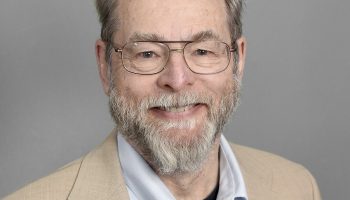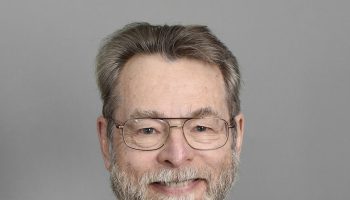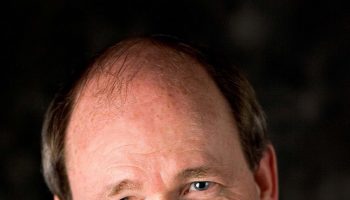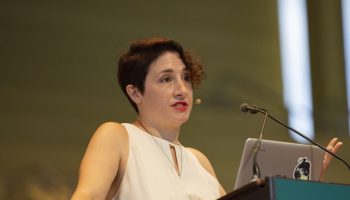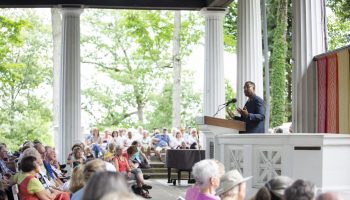Dissent is uncomfortable and denounced in American society, according to Ersula Ore. But she also said dissent is not only a necessary component of democracy, but is “democratic citizenship.”
 “American identity (and) politics; the people (and) the nation were constituted through dissent,” said Ore, who is the Lincoln Professor of Ethics at Arizona State University’s School of Social Transformation. “The Declaration of Independence is a legally codified manifesto of having dissent against foreign rule, and then from there on everything else stems.”
“American identity (and) politics; the people (and) the nation were constituted through dissent,” said Ore, who is the Lincoln Professor of Ethics at Arizona State University’s School of Social Transformation. “The Declaration of Independence is a legally codified manifesto of having dissent against foreign rule, and then from there on everything else stems.”
Since the founding of the United States, Ore said dissent has played, and continues to play, a key role in its existence. Despite how crucial it is, she said dissent has always “been criticized through a discourse of civility” because of how it disrupts people’s comfort.
At 4 p.m. Monday, July 23, in the Hall of Philosophy as part of the Lincoln Applied Ethics Series, Ore will examine how dissent has been criticized and labeled as “uncivil discourse” in America’s past and current political climate.
Ore said the lecture will consist of “a discussion about civility and dissent.” Ultimately, she wants the audience to think about “how civility undermines the pursuit for justice” and for them to remember that dissent is a part of American democracy.
She also wants the audience to ponder “(dissent’s) relationship to notions of stability.”
“The way it’s couched is that to be civil is to be right, to be correct, to be appropriate,” Ore said. “To be in line with. To be a dissenter is to be the complete opposite of that. Any time you’re opposing something, you are being rebellious.”
In other words, civil discourse, or the ideas of “being respectful, civil and polite” in society has been used to crush dissent throughout history, Ore said.
“One example of that will be MLK’s letter from Birmingham Jail,” she said.“Several clergymen wrote King. … One of those major things that the clergymen told him was, ‘You’re being uncivil, you’re being disrespectful,’ and King has this whole response to their claims of incivility.”
Dissent is to think differently, Ore said, and she believes its history in the United States sets the country apart from many places in the world.
“Democracy is built on a pluralistic society,” Ore said. “We are not all the same, we do not all think the same, nor do we share the same experiences and opinions. That’s one of the beautiful things about being able to live in America — that you are not persecuted for thinking differently.”
Ore graduated from Pennsylvania State University with an Ph.D. in rhetoric and composition. Her studies revolve around how humans communicate with one another through modes such as language and different symbols. She has been a professor at ASU’s School of Social Transformation since 2011, where she is also an assistant professor of African and African-American studies and rhetoric.
“I’m most interested in the ways that aggrieved communities use language (and) discourse to create particular changes in the world,” Ore said. “I examine the way aggrieved communities use language, symbols (and) discourse to affect change that is meaningful in their lives.”
Since she was a child, she has been fascinated by the power of language and symbols. Ore said she used to sit in church with her family and pay attention to the rhetoric the pastor used and how the audience would respond to it. She saw the power of language everywhere she went and how it “can galvanize and move people and can create change, but at the same time it can do serious damage.”
Ore said she hopes that her lecture on dissent and civility will make the audience think about the conscious and unconscious practice of ethics.
“When I think ‘applied,’ I think about the practice,” Ore said. “My hope is that the discussion on dissent and civility gets at questions of moral good, of rightness (and) of (justness). Of what should be compared to what is.”

